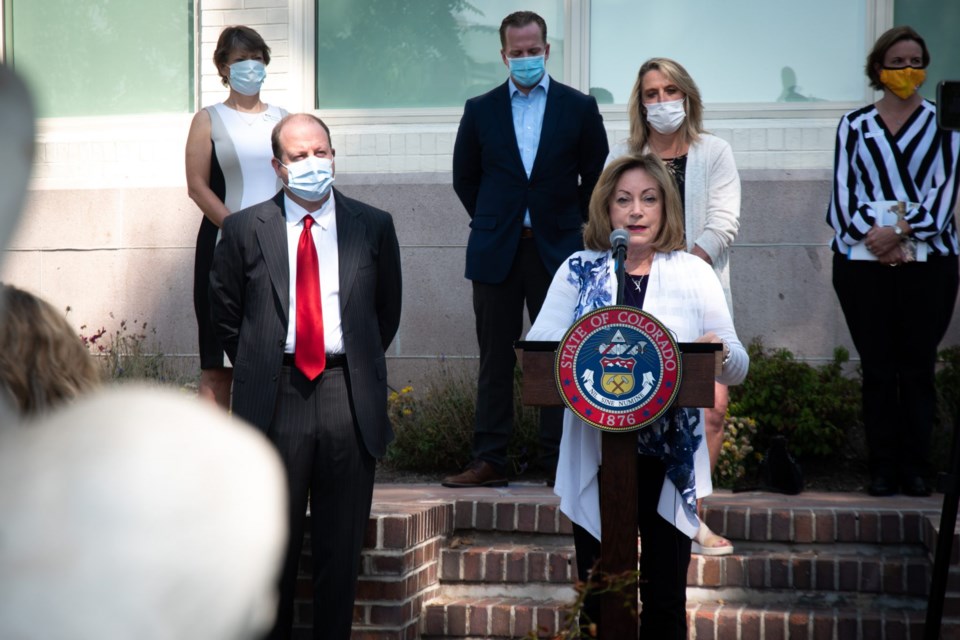Editor's note: This story was originally published by Colorado Newsline. Read the original story here.
On Feb. 7, only three days after her daughter Olivia’s 13th birthday, Vickie Zacher’s worst nightmare became a reality.
“I do feel my daughter could have been saved, but she was just a number being pushed through the system that failed us,” said Zacher, who spoke during a press conference on Wednesday about how she tried for years to access adequate behavioral health care for her daughter leading up to her suicide.
Colorado has the seventh-highest suicide rate in the nation, according to Michelle Barnes, executive director of the Colorado Department of Human Services. Suicide is the second leading cause of death for Colorado youth.
Colorado’s Behavioral Health Task Force, formed by Gov. Jared Polis in 2019, released a 31-page “blueprint” during a press conference Wednesday. The report serves as a road map of recommendations for systemwide reforms to the state’s behavioral health care system, including creating a Behavioral Health Administration to streamline programs across the state, expanding tele-behavioral health services and improving affordability.
“Navigating care is an extremely complicated process across 10 state agencies and 75 programs,” Polis said during the press conference. “It’s easy to see how someone in need could get lost between them.”
Though the report provides nearly 150 recommendations to reform the state’s behavioral health system, few details were outlined about how the recommendations would be implemented.
“Too many Coloradoans across the state have lost a loved one to suicide or substance use, because they could not get the life-saving care that they needed,” said Lt. Gov. Dianne Primavera, who helped spearhead the efforts of the task force. “The system is broken, and we need to do a better job serving those who are struggling with behavioral health issues.”
Barnes, who chair’s the state’s Behavioral Health Task Force, said the implementation phase of the road map depends on funding. This year, the efforts will be run out of the Office of Behavioral Health using existing funds and resources.
“We will then be putting proposals in front of the Legislature, but the governor has made it very clear that this isn’t the time to be putting a lot of budget proposals forward,” Barnes said. “And we adapted and we changed and we’re happy to say this will cost you nothing new, governor.”
In June, the state Legislature finalized it’s 2020-21 budget by closing a roughly $3 billion shortfall, which was spurred by the coronavirus pandemic. Though the latest economic forecast looks slightly more optimistic, economists and lawmakers are still bracing for another tight budget year.
When asked if the new behavioral health administration would include additional staff members to help coordinate the efforts throughout the state, Robert Werthwein, director of Colorado Office of Behavioral Health, said “we just don’t know yet.”
“We’re going to do everything we can to not add a cost,” he said. “I think there’s a ton we can do that doesn’t involve new money, it’s just being smarter about how we serve people.”
Colorado Newsline is part of States Newsroom, a network of news bureaus supported by grants and a coalition of donors as a 501c(3) public charity. Colorado Newsline maintains editorial independence. Contact Editor for questions: [email protected]. Follow Colorado Newsline on Facebook and Twitter.



